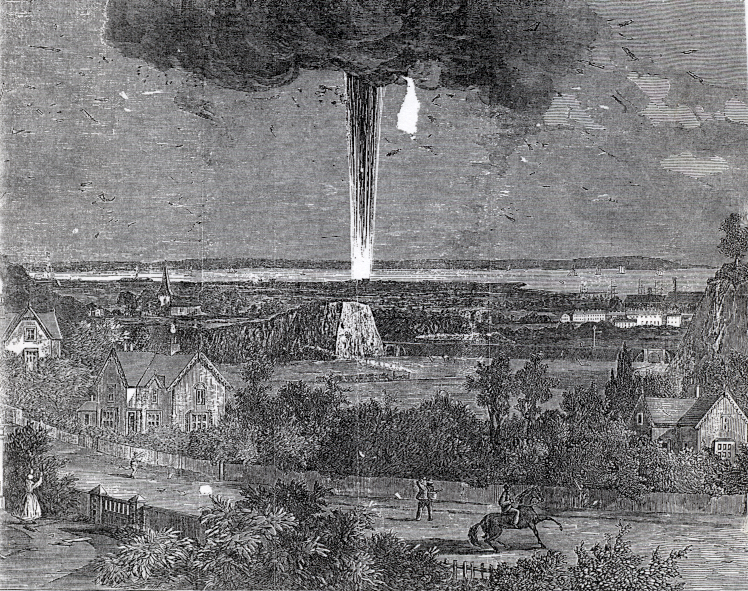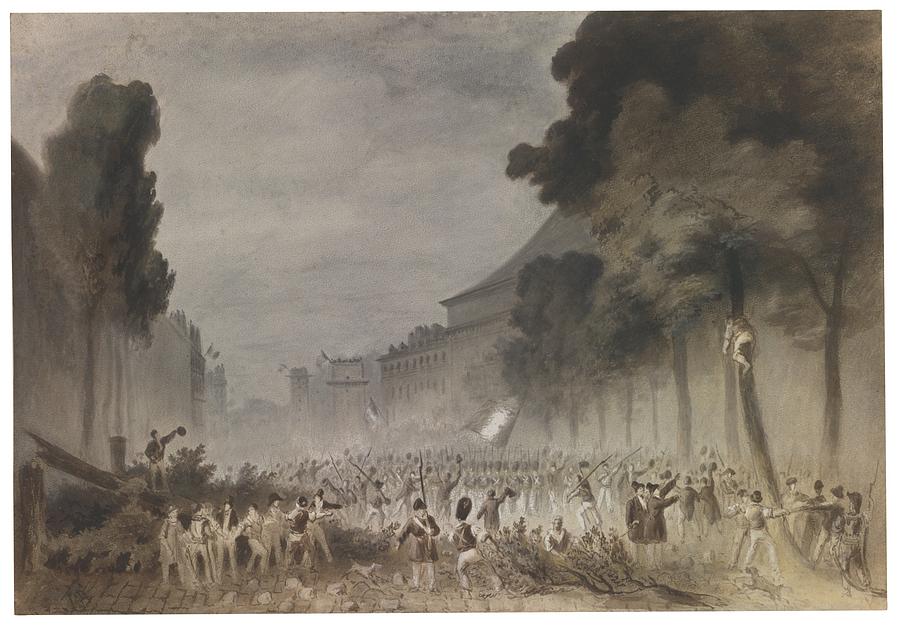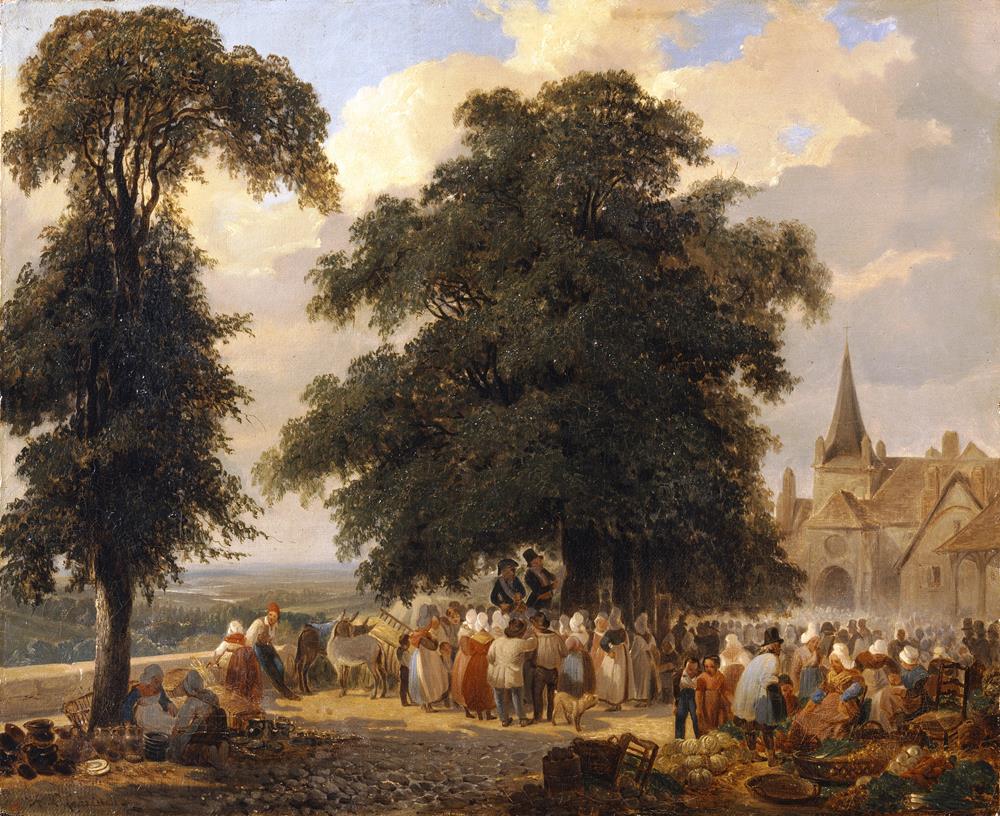Chapter XLIII: Syrenia in Chaos
The near destruction of the Army of Aquileia and the death of Cato, the effective Grand Viceroy of Syrenia in the absence of Pomerlane sent the Grand Principality into chaos.
Occidentis Syrenian League
The Western cities took drastic action immediately and elected the commander of the Concordian Territorial Corps, a certain Titus Quinctilius Saturninus, as the Governor-General of Occidentis (Western) Syrenian League on May 16th. Saturninus was an old veteran of the Syrenian War, and the former longtime Republican Governor of the Bellona District. He had defected to Pomerlane after the destruction of Poseidonia during Pomerlane's Western Anabasis a decade before and had briefly served as the Governor of Concordia until he retired in 1110 VTE.
 Titus Quinctilius Saturninus, Governor-General of the Western Syrenia League
Titus Quinctilius Saturninus, Governor-General of the Western Syrenia League
With the coming of the Great Pomeranian War, the 59-year-old was called back into service to command the local troops in Concordia and had not seen any action up to this point. He did, however, manage to convince Cato to send some arms and officers to his command in the aftermath of the fall of Venusia. Not counting the irregular Gebirgsjägers nor the sieged garrison of Neapolis, he now commanded roughly 18,000 men, mostly militiamen and veterans of the Syrenian War, for his own defense of the League. He would go about raising an addition 15,000 men over the next few months and trying to bring his current troops up to standard but that was a tall task.
The lack of Flintlocks and the ability to produce them effectively forced the League to rely heavily on Pikes and Matchlocks. To make matters worse, the lack of horses and trained riders effectively gave him a cavalry force that numbered little more than 500 older veterans that had settled in the area in recent years as a reward from Pomerlane after the Syrenian War. These veterans, however, were still a high-quality heavy cavalry force despite their small size and if used correctly could punch above their weight. Still, the lack of light cavalry inhibited Saturninus greatly. Modern artillery was also absent, and many of the cannons that were available were older guns like field culverins, sakers, falconets, and demi-cannons. They were better than nothing but could hardly hope of having much effect against modern artillery in battle.
Still, Saturninus did have some advantages working for him. He was able to get into contact with the commander of the Gebirgsjägers, Hyazinth de Maizière, and officially integrated these wild mountain men into his overall command; under the condition that Hyazinth would operate independently. He also was greatly blessed by the other woodsmen and hunters turned militiamen that made up the Western Provinces that he would form a more regular light infantry from, known as the Grenzers. Unlike the Gebirgsjägers, which were made up of the more untamed and ravenous folk of the region, the Grenzers had been more formally trained in war due to their service as militiamen and many had seen combat already during the Bellona campaign. Saturninus hoped that these light infantrymen could make up for many of the deficiencies that he faced in quality and quantity with their skills as marksmen and skirmishers. A total of 1,500 Grenzers would be raised and formed into two small regiments.
 Grenzer, made up largely of the Zahumlje and Travunija minorities native to Bellona.
Grenzer, made up largely of the Zahumlje and Travunija minorities native to Bellona.
They would be placed under the command of Josip Filip Vukasović, a Bellona noble of from Zahumlje minority that inhabited the ethnically diverse border regions of southwestern Syrenia. His family had a long tradition of military service to the Syrenian state in all of its forms, and Josip himself was a veteran from the Syrenian War and was a leader of a regiment of Militia during the Bellona Campaign from the year previously. Vukasović himself was a good friend of both Saturninus and Maizière, knowing both of them from the time they spent together in the Bellona campaign. He was popular amongst his men, many of whom shared the same ethnicity as him, and was known for his love of the drink.
 Generalmajor Josip Filip Vukasović, commander of the Grenzers
Generalmajor Josip Filip Vukasović, commander of the Grenzers
Aquileia is besieged
When Prince Haakon and his army arrived at Aquileia on May 18th, he was immediately impressed by the defenses of the city. Both him and Björkqvist understood that this siege would be a long one that they would have to conduct in a meticulous and through manner. The first order of business for the pair was to invest the city completely and build lines of contravallation and circumvallation around the city. It would take a week for both lines to be completed, and more time for the several bastions and forts to be built that would be integrated into them both.
Many raids were launched upon the besiegers during their attempts at fully investing by the garrison, with sharpshooters taking potshots from the no man's land between the city and the besiegers at officers, engineers and laborers. While the sharpshooters were a problem that caused minor issues, it was the night raids by picked men from the garrison that caused the besiegers the most problems. Armed with knives, bayonets, garrotes and entrenching tools, groups of 20 or so men would be sent out at different points towards the enemy lines under the cover of night to cause havoc in the enemy camp. They would sneak up to the enemy sentries and dispatch them quietly before proceeding to do fall upon the sleepy men in their tents. Vicious struggles in the close quarters between the raiders and the raided would occur that would be remembered for their brutality. One particularly successful raid would result in the detonation of the entire gunpowder storage of the north-eastern besiegers that caused such a great explosion that it would throw many from their beds and wake nearly the whole army. Two dozen were killed, and hundreds would be wounded in the explosion.
 The Gunpowder explosion of the night of the 24th of May
The Gunpowder explosion of the night of the 24th of May
While these raids certainly had their effect on the morale of the besieging army and slowed down work, it meant little overall as the lines were completed on May 27th. Aquileia was now fully under siege and the legendary struggle for the city had just begun.
The Empress takes the reigns
Empress Emylia in Pendoria when news reached of her of the great disaster at Populonium on May 14th. Understanding the gravity of the situation almost immediately, she would depart directly for Laodice to prevent the total collapse of the state. Reports grew worse as she travelled south, with reports of the Territorial Corps going AWOL along with its commander and the city itself being torn apart by violence When she arrived in Laodice on the 21st, she found these reports to be accurate. The streets were filled with mobs, many shops were destroyed, parts of the city were on fire and the City Guard was besieged in the Citadel by an angry mob. Fortunately, some 700 men from the Territorial Corps had managed to barricade off part of the Temple district and control the city walls in this sector allowed the Empress and the 2,500 men of the Imperial Guard to enter the city.
The local commander, Ludovicus Castus, debriefed the Empress of the situation and told her that he believed that drastic action needed to be taken to restore order to the city soon otherwise revolution may occur. He also said the situation may be out of control already however because of the Territorial Corps' munity. The Empress asked him where his commander, Flavius Rufus, was. He after all, was not a coward by any means and was firmly committed to the cause. Castus told her that he was killed by his own men, and that most of the Territorial Corps was now plundering the countryside to the south of the city.
She then told him "Castus, with your men and the Imperial Guard you will restore order to this city at once!"
"Yes, my Empress, I can certainly attempt it. But succ-"
"I do not care about odds or chances here, commander. If you do not feel fit for the task, I'll do it myself!"
"N-no need, my Empress, it shall be done, or I will die trying."
"Thank you, Brave Castus, may LazuLight watch over you."
Leaving just 200 men behind at the Temple district. The Imperial Guard and Castus' men marched into streets with Bayonets drawn, ordering all to stand down at once.
Castus shouted repeatedly as they marched through the streets
"Stand down at once, or no quarter shall be shown to any of you. Give up your acts of criminality or face death!"
With large, well-equipped force marching through the streets towards them; most of the mobs would stand down voluntarily aside from one mob that had taken control of the entertainment district. This mob could be properly described as an armed insurrection aimed at overthrowing the Grand Principality entirely, and its leaders barricaded themselves in the district, armed to the teeth with muskets looted from the armory. As Castus split up much of his force to quell the rest of the city and free the garrison, he called for cannons to be brought to bear against these revolutionaries. With most of the city restored to order by nightfall, the Imperial Guard surrounded the Revolutionaries and prepared to take back the district the next day by force. When Dawn arrived, the Imperial Guard found the revolutionaries ready for the onslaught. The Guard's commander, Adolf Magnus von Salza rode his horse in behind his men and shouted to the Revolutionaries
"Give it up now, and you shall be spared. Your revolution is over!"
The Revolutionaries responded by shooting at Salza, who immediately gave the order for the cannons to open up. The double canister shot torn through the revolutionaries and caused them to waver, and they would soon be slaughter to each man and woman that was part of them with no quarter shown by the Imperial Guard. Some 1,000 Revolutionaries would die.
 The Revolutionaries being crushed by the Imperial Guard in Laodice.
The Revolutionaries being crushed by the Imperial Guard in Laodice.
With order restored to Laodice, the matter of the Territorial Corps had to be deal with. The Empress sent an envoy to the camp of the Territorial Corps and had him read allowed his message. The message told them of the situation in Laodice being restored and that they would meet the same fate as the Revolutionaries should they continue their actions. All that was asked was for them to hand over their ring leaders and they would be pardoned. Fearing their own fate, they quickly complied with the offer and the 12 ring leaders of the plot were handed over and brutally executed. Nearby cities that were undergoing similar ordeals as Laodice would also be restored to order soon after in peace thanks to the restoration of order to Laodice and the Territorial Corps.
The Empress had succeeded in preventing the state from totally collapse with her quick actions and thinking but holding it together would be a whole different manner. Civil government in the Grand Principality would be placed under her uncle, Prince Nicephorus for the time being until Pomerlane decided who he wanted in power.
The Empress wasn't well educated on military matters, but she was smart enough to understand that there was little stopping Magnus from taking Laodice should he march on it. Thus, she wrote a letter calling for volunteers in defense of Syrenia against the "Dragoon Menace". Calling on patriotism, the need, and the long remember Dragoon conquest of the Principality many years before; she urged every man willing and able to volunteer for the defense of their homeland and the Empire. She wisely told them of the horrors that would befall their nation if they did not answer the call.
Her well-crafted and eloquent letter worked wonders as it was read in every hamlet village, town and city still under Imperial control. Tens of thousands would volunteer to protect their homeland from the hostile invaders, and so many would answer the call that there was a great shortage of uniforms and equipment to outfit all of them. In total, some 50,000 men be raised as a result of this by the end of July, and more as time went along. It was a great triumph for the Imperial cause in Syrenia.
 A Town Crier reading the Imperial Letter to the crowd..
A Town Crier reading the Imperial Letter to the crowd..
The only issue aside from what was already mentioned is the lack of Officers and NCOs to lead these men. This wasn't a problem that could be fixed immediately, and the general lack of properly trained officers and NCOs from Syrenia would force retired Officers back into action perhaps past their prime and an influx of inexperienced officers and NCOs drawn from the unqualified men. Pomerlane himself would aid this problem by sending some from Pomerania but this still would be inadequate.
Regarding Pomerlane, he received news of the disaster in Early June just before the great battle of Kummenhennersdorf. He intended to send part of the Black Army under Generalfeldwachtmeister Hackenberg with roughly 15,000 veterans from the Black Army south to reinforce Syrenia and immediately following the surrender of Pomulius, he would do this.
Hackenberg's men would arrive in Syrenia in Mid-August and their arrival would be important in the long term but as of now, Syrenia's defense was left largely to Kieselbach's 16,000-man tattered Army that despite its victory a Geminiacum, was in no state to fight Magnus or any other Dragoonian army on the field; the ill-equipped and undertrained forces of the Western Syrenian League; the scattered territorial forces that were little more than militia, and the Army of the Proserpina and its 25,000 men under Archduke Demetrius. With Magnus preparing to campaign against Demetrius to drive him out of Syrenia completely, things looked awfully bleak for the Grand Principality.